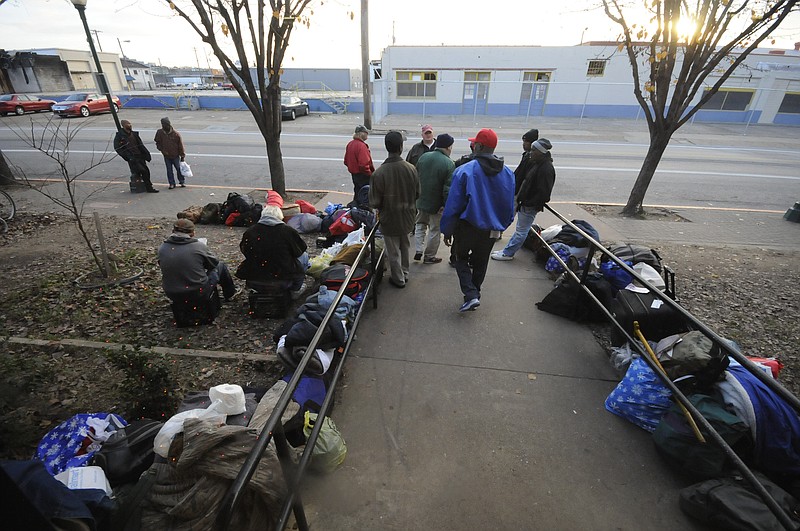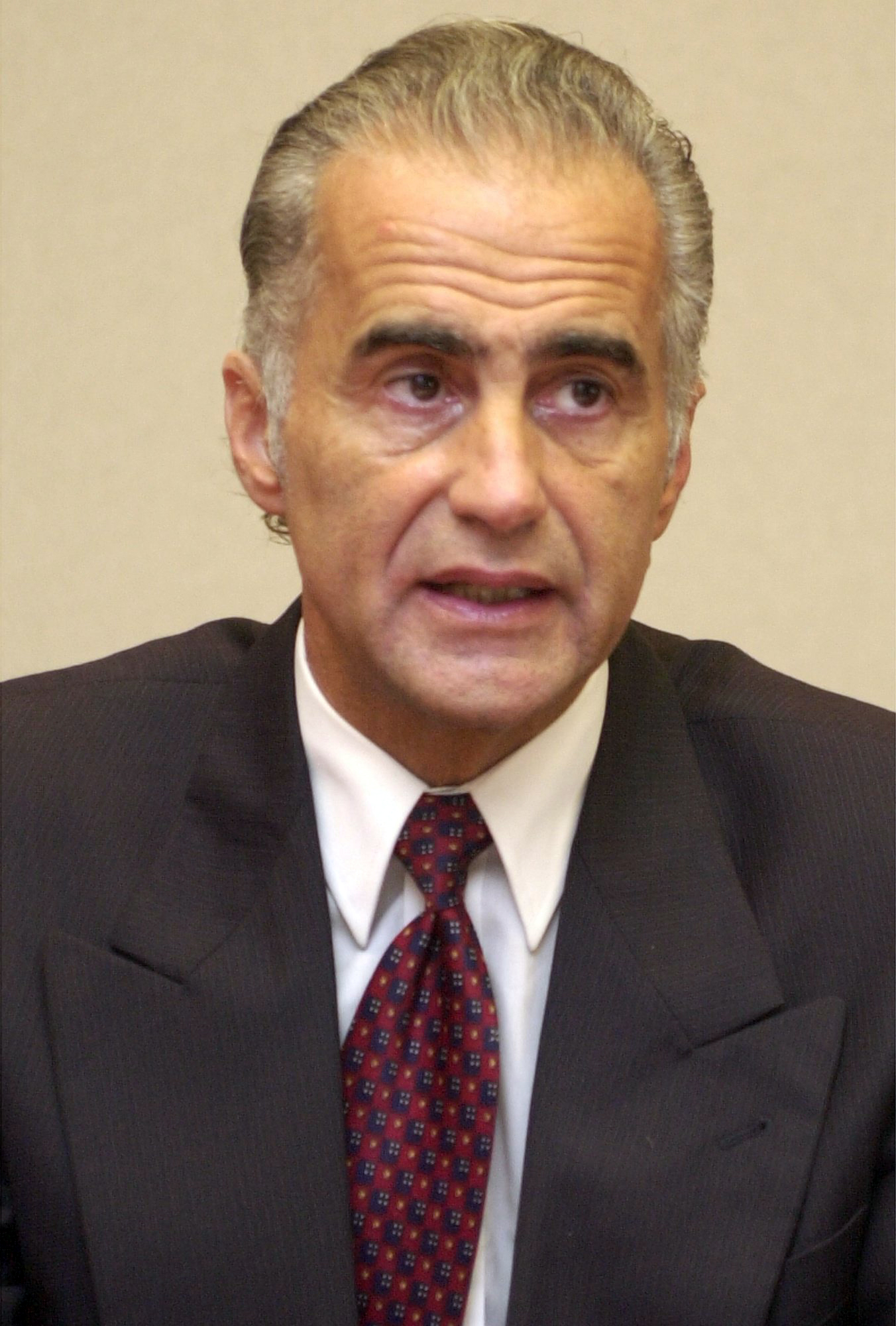Serving meals and providing tents to the homeless is good, but the goal should be to end homelessness, not to manage it, said the leader of a national organization working to end homelessness.
"If we're growing our homeless programs, we're going in the wrong direction if they don't correlate with a reduction in homelessness," said Philip Mangano, president and CEO of the American Round Table to Abolish Homelessness, a Boston-based group.
On Tuesday, Mangano was one of two national speakers and local elected officials addressing more than two dozen philanthropists and social service agencies about homelessness at the Chattanooga Regional Homeless Coalition's community funders forum. The goal of the event was to create a coordinated effort to focus philanthropists and social service agencies on ending homelessness.
Chattanooga Regional Homeless Coalition will start conducting a cost study of homelessness this year, one of more than 70 such cost studies being done around the country, Mangano said.
From 2003 to 2007, the count for the homeless has dropped from about 1,100 people to just under 500 in the Chattanooga region. But now the region has been stuck at just under 500 homeless people for three years, said Mary Simons, executive director of the Chattanooga Regional Homeless Coalition.
"We've done a great job," she said. "But our job isn't done."
The goal is to house the 500, then put a system in place that's efficient enough to permanently house anyone within 30 days after the homelessness occurs, Simons said.
Before funders can come together to abolish homelessness, they must first believe that they can do it, said Anne Miskey, executive director of Funders Together to End Homelessness, another Boston-based advocacy group. Some food banks and shelters see homeless people so regularly, the workers know them like family, but that shouldn't be, Miskey said. The goal is to find them housing and services so they don't have to use food banks and shelters, she said.
It's not only the morally right thing to do, providing housing for the homeless is also economically right, said Mangano.
Nationally, cities have spent between $35,000 to $150,000 per person per year to provide services for people who are homeless. But providing housing with services for the homeless can be done with $13,000 to $25,000 per person per year, Mangano said.
Providing money to end homelessness shouldn't be charity but an investment in the community, he said. Funders should expect to see a return -- the end of homelessness, he said.
Scott Maclellan, president of Chattanooga's R.L. and K.H. Maclellan Foundation, said he's ready to bring homelessness to an end.
"We believe that homelessness is something that can be done away with," he said. "We're interested in widows, in single-parent families, in homeless veterans."
ENDING HOMELESSNESS
To prevent and end homelessness, the 2012 Blueprint analysis recommends the following:
• Produce a minimum of 300 housing opportunities annually for individuals and families experiencing homelessness in the Chattanooga region.
• Create low-demand shelter opportunities for individuals and families who become homeless.
• Create case management standards that include effective outreach, appropriate linkages to mainstream resources and housing as quickly as possible, preferably within 30 days.
• Create a fully functioning centralized intake and assessment process located in a place that is accessible to people who are homeless or near homeless.
• Prevent homelessness for a minimum of 200 people per year.
• Designate the Chattanooga Regional Homeless Coalition as the Blueprint implementation mechanism.
• Develop new resources and reallocate some exiting resources to implement the recommendations.
• Ensure that the resources are adequate to achieve the following: Finish the job of ending chronic homelessness; end veterans' homelessness by 2015; end family homelessness by 2017; set a course to end all homelessness in the Chattanooga region.
Source: 2012 Blueprint analysis

